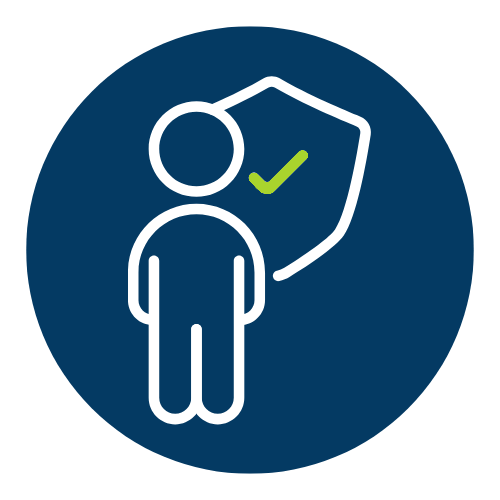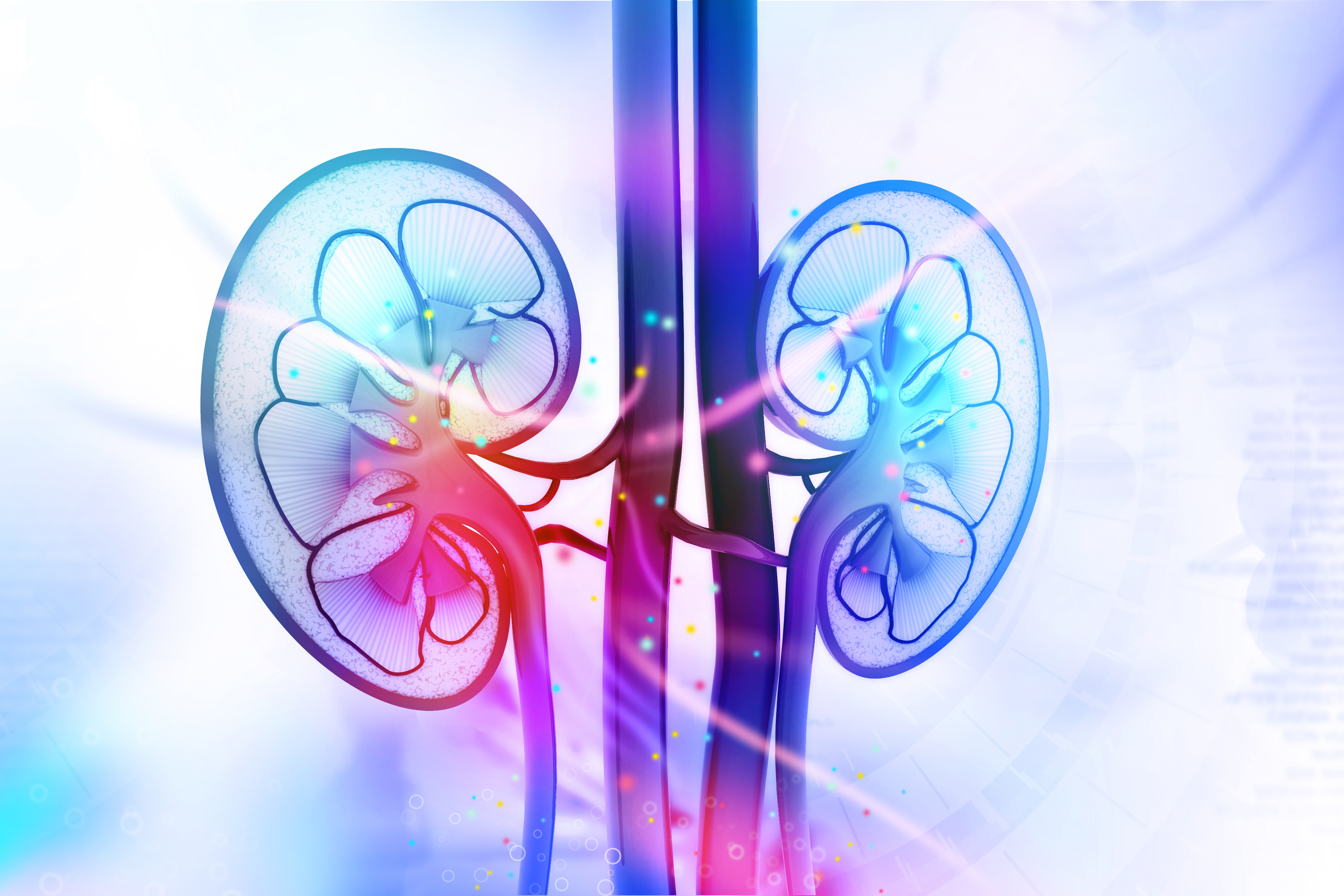Patient to Patient Mentoring Program
Being a Patient Mentor
Back to Patient Mentoring Program | Go to Connecting with a Patient Mentor
Help Renal Patients Like Yourself.
Offer positive role modeling to new patients and patients in need of support.
Share your experiences and information on treatment options.
Help patients understand the benefits of being involved in their care.
Encourage positive communication with the healthcare team.
Step 1: Application
All mentor candidates must complete an Application (English / Spanish).
If you are a:
-
Dialysis Patient: Your application must be vetted/approved by your dialysis facility. Once approved by the facility staff, it must be submitted to the Network 3 contact.
-
Kidney Transplant Patient: You must submit your completed application to the Network 3 contact.
Once your application is approved by the facility staff and/or Network 3 contact you must complete the following steps.

Step 2: Create an account on the Kidney Learning Hub
Mentors must create an account on the Kidney Learning Hub at www.kidneylearninghub.com.
Step 3: Complete the Peer Mentoring Education Program
Mentors must access the Peer Mentoring Education Program and Peer Mentor Role to take the required courses.
Mentors must complete all courses (1 - 3) below.
1. Welcome to Peer Mentoring
Being a peer mentor is an important role. This course will tell you what you need to know to be a peer mentor.

2. Mentoring to Support Choices
In this course you will learn how to support your peer as he or she makes important decisions about treatment choices.

3. End Stage Renal Disease Overview
Understanding kidney disease can help empower patients to advocate for themselves. This course will build your knowledge about kidney disease.

Must complete at least one course (4 - 6) below.
4. Discussing Home Dialysis as an Option
This course will prepare you to talk with your peers about home dialysis as a treatment choice.

5. Discussing Transplant as an Option
This course will prepare you to talk with your peers about kidney transplant as a treatment choice.

6. New to Dialysis
In this course, you will learn about what to expect from your dialysis treatment and how to be an active member of your care team.

Upon finishing the courses, patient mentors will be given Certificates of Completion. The certificates acknowledge that you’ve completed the necessary activities to be a part of the Network and Dialysis Facility’s Patient to Patient Mentoring Program.
Your dialysis facility’s staff and Network contact will work closely with you to assist with this process. Once the educational courses are completed and certificates are provided you will then be ready to connect with other patients.
STEP 4: MONITORING AND TRACKING PEER MENTORING ACTIVITIES
When mentors are paired with patients, the mentor is to complete the following:
- Confidentiality Waiver – for each patient you’re connected with:
- Patient Mentoring Log - after each patient-to-patient connection:
This document helps:
-
-
-
Measure activities of mentoring.
-
Assess mentoring outcomes.
-
Conduct proper follow-up.
-
-
Completed Confidentiality Waivers and Mentor’s Logs are to be shared with the facility staff and emailed or faxed to the Network 3 contact.
SUPPORTIVE RESOURCES
The resources below can be found on the Kidney Learning Hub and are designed to support peers in their mentoring relationship.
-
Share the "A Patient Peer Mentoring Program" video with patients while on treatment, lobby TV, etc.
Frequently Asked Questions
-
How do I qualify for the program?
- Must have been on dialysis for one year or more
- Complete an application to join the program
- Complete at least 4 out of 6 training modules
- Willing to set aside time to meet with a peer
-
How long does it take to do the training?
This is different for everyone! Completion usually averages between 30-45 minutes per module. The best thing to do is try the first one and see how it goes. If it’s not for you, you don’t have to continue. The program is designed to be self-paced, so you can stop and start to suit your schedule. There is no time limit for completing the training.
-
Why do I have to do so many training modules?
It’s very important that Mentors have a basic understanding of dialysis, the expectations of the Mentor role, and who to refer someone to if they have issues that a professional is best suited to handle. Modules are broken down into smaller pieces to cover all these areas. They are also separated to make learning easier. There are six modules, but you only have to complete four to be fully certified. The first three set the foundation to ensure you have a basic understanding of dialysis, understand the role of being a peer mentor, and know who to refer a peer to if they have issues or questions that a professional should help them with. The last three modules focus on speaking with patients who are new to dialysis, patients who are interested in home options, and patients who are interested in transplantation. You can choose from the last three modules and do one, two or all three if you want!
-
How much time does mentoring a peer take?
Every pairing will be unique. Some folks just want to hear from others about a specific topic and only need to meet the one time to get a couple questions answered. Some need a buddy to help them not feel alone and may want to meet once a week for a half hour a few times. It’s up to you and your peer to decide how often and how long to meet.
-
How long will each mentoring session take?
Every pairing will be unique. Some may only take a couple minutes to answer specific questions. Others may be a half hour of chatting to get to know each other and talk about the journey. It depends on what your peer is looking for and the time you both agree to set for it.
-
How many people do I have to meet with each week?
It is not recommended to take on more than two peers at a time to mentor. It is perfectly okay to only have one at a time. It is unlikely that you will consistently have a meeting each week. Expect breaks!
-
Do I have to mentor patients outside of my dialysis facility?
No. Sometimes mentors prefer to stay available only to their facility. That is okay! Others may be willing to be available to peers at any facility. The Network will contact these mentors to pair with peers who may not have a mentor at their facility. Because mentoring does not have to be in-person, people can get together by phone, email or video chat. No travel is required! Pairings with people at your facility will most likely be coordinated by your dialysis center.
-
What if I am not a good fit with the peer I’m paired with?
Sometimes this happens! Just let your social worker or the Network know and we will pair the peer with someone else. No worries!
-
How will I get paired with a peer?
When you are fully certified as a Peer Mentor, your facility and/or the Network will help to identify a peer to match you with. Once confidentiality forms are signed, you will be provided with the peer’s contact information. You can then reach out to your peer and decide on the best time and way to meetup.
-
What if I identify a peer that I would like to mentor?
Let your social worker or the Network know. Confidentiality forms should be completed first.
Mentor Do's
-
1. Respond appropriately.Promote an environment of respect and understanding. Share information or experiences that relate to what your peer is talking about. Stop to ask if your peer has questions. Make sure that your peer understands the information. Use an “I” statement to state an opinion or share an experience. Make it clear that you are sharing your opinion and not forcing it on your peer.
-
2. Be a role model.
As a mentor, you act as a role model to empower your peer to adopt positive self-management skills. Help your peer see that he or she is not alone in facing the challenges of kidney disease.
-
3. Understand cultural diversity.
People have different backgrounds and they also have different cultural influences. Acknowledge that differences are something to be celebrated.
-
4. Show a positive outlook.
Help motivate your peer to stay active in his or her care and discuss the benefits of being involved. Talk about treatment choices and encourage communication with the healthcare team. Encourage your peer to get back to doing things they enjoy.
Mentor Don'ts
-
1. Give medical advice.
You can talk about your experience, but always tell you peer to talk to the treatment team for medical advice. Sharing with your peer how you decided on a treatment is helpful. Referring your peer to talk to a facility staff is acceptable. Telling your peer what they should do is not acceptable.
-
2. Judge.
Keep an open mind about what you hear. Allow the speaker to finish each point before asking questions. Try not to interrupt with counter arguments. Don’t judge what the person is saying or his or her point of view. Do not react in a negative way. Remain positive through your gestures and communication.
-
3. Discuss sensitive issues.
Steer away from controversial or sensitive topics.
-
4. Share protected health information.
Do not share information that a patient has conveyed to you with anyone, including friends, family or other patients. If you feel that a patient needs assistance from someone more qualified, then you can refer them to a member of the facility’s interdisciplinary team.
Network 3 Contact
Yessi Cubillo
ycubillo@qualityinsights.org
(609) 490-0310 ext.2431
Fax: (609) 490-0835
Patient Toll Free Line:
(888) 877-8400


